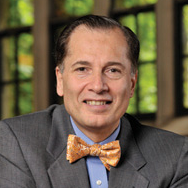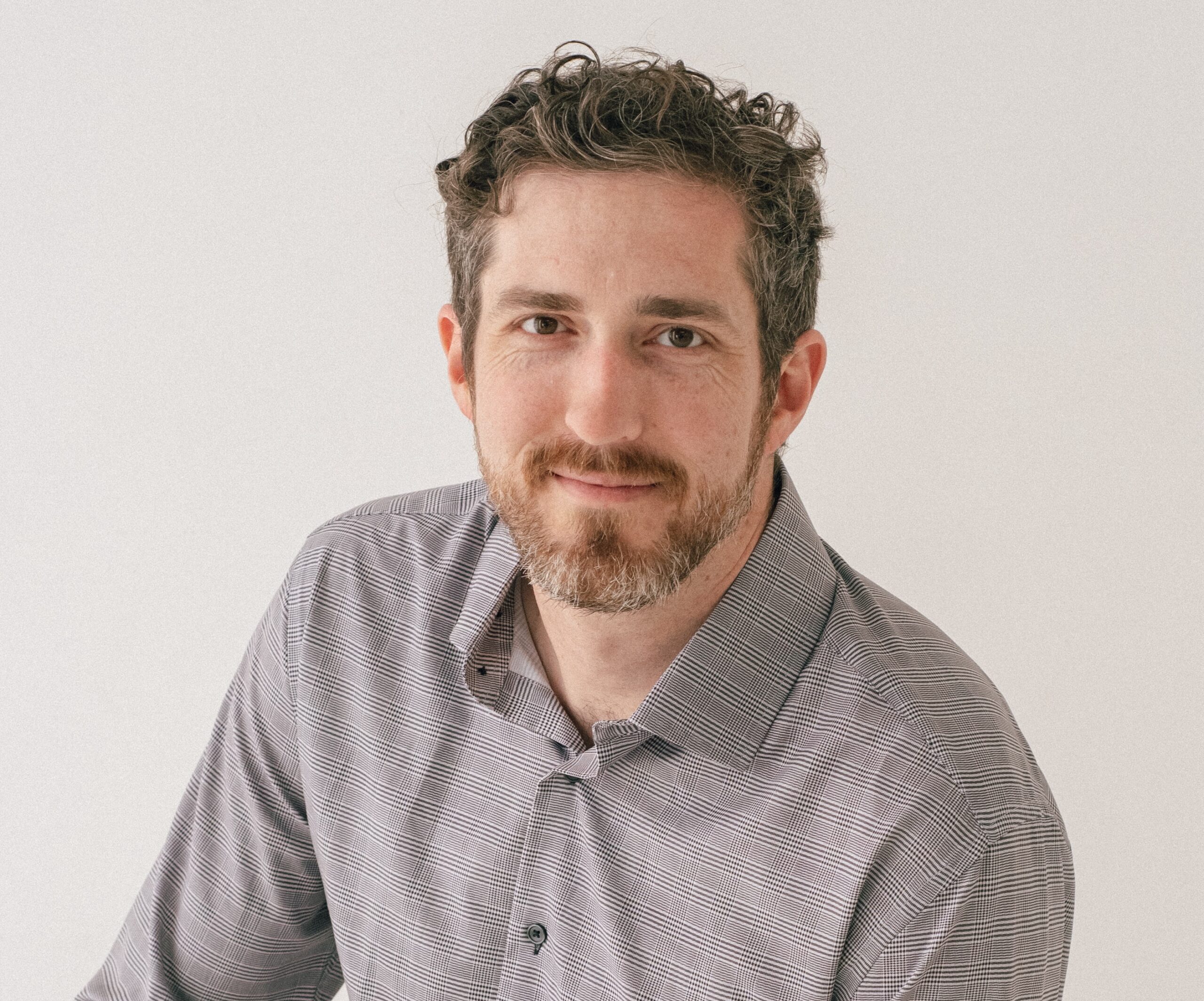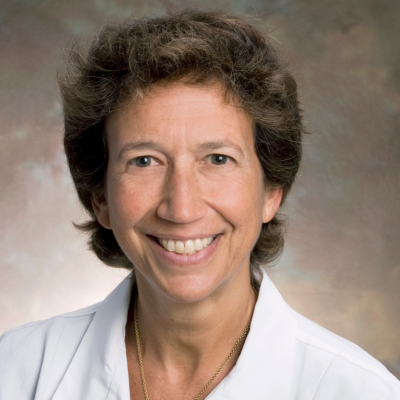
Research Symposium
Dean Emeritus of the College of Medicine
B.A. Field Chair in Ophthalmologic Research, Department of Ophthalmology and Visual Sciences
University of Illinois Chicago
Dr. Dimitri Azar is an internationally recognized ophthalmic surgeon who served as Dean of the College of Medicine at University of Illinois from 2011 to 2017. He joined the faculty in 2006 as Head of the Department of Ophthalmology & Visual Sciences. Previously he was a tenured Professor of Ophthalmology at Harvard Medical School, Director of the Cornea Service at Massachusetts Eye and Ear Infirmary, Senior Scientist at Schepens Eye Institute and a faculty member at Johns Hopkins School of Medicine. He earned an executive MBA from University of Chicago. Dr. Azar is board certified in ophthalmology.
He is a leader in basic science and clinically related vision research, making significant contributions to the treatment of corneal diseases and to advances in refractive surgery through mathematical analyses and applications of advanced optics. His basic science research on matrix metalloproteinases in corneal wound healing and angiogenesis has been continually funded by the National Eye Institute R01 award since 1993.
Dr. Azar is the author of more than 400 scientific articles and book chapters. He is the editor of 14 books in ophthalmology and holds 15 patents. He has been named one of The Best Doctors in America or recognized among Castle Connolly’s Regional Top Doctors in America annually since 1994. He serves as a trustee for the Chicago Ophthalmological Society and for the Association of Research and Vision in Ophthalmology. Dr. Azar has received multiple leadership awards, including the 2009 Lans Distinguished Award and the University of Illinois at Chicago Scholar Award.

Gettes Lecture
Sioux Falls, South Dakota
John Berdahl, MD is a board-certified ophthalmologist who is internationally regarded as a leader in LASIK, cataract, cornea, and glaucoma surgery. He is among a very small group of U.S. surgeons fellowship-trained in cornea, glaucoma, and refractive surgery.Dr. Berdahl is most motivated by the trust his patients place in him during their moments of vulnerability.
As he meets patient needs and learns more about the problems they face, he’s had several opportunities to stretch his skills as an inventor and problem-solver. He co-invented the MKO melt , an innovation used in his Sioux Falls clinic that provides sedation during cataract surgery without the use of an IV or opioids, and developed Interfeen, a rare disease drug that helps with ocular conditions. He created astigmatismfix.com, a resource that has helped tens of thousands of surgeons eliminate residual astigmatism after cataract surgery, and he co-founded ExpertOpinion.MD , a site where patients can request medical opinions from authentic world experts. He also is the founder of Balance Ophthalmics , the first non-surgical, non-pharmacologic way to lower eye pressure for glaucoma treatment, which was FDA approved in 2024.

Bedell Lecture
Director, Ocular Oncology, USC Roski Eye Institute
Keck School of Medicine
Jesse L. Berry, MD is Professor Ophthalmology, Director of Ocular Oncology and Chief of Ophthalmology at Children’s Hospital Los Angeles (CHLA) and the University of Southern California (USC) Roski Eye Institute. She received her undergraduate and medical degree from Harvard University followed by ophthalmology and fellowship training at CHLA+USC under the mentorship of A. Linn Murphree, MD. Dr. Berry is the founder of Women in Ocular Oncology, President of the International Society of Ocular Oncology (ISOO, 2024-26) and treasurer of the American Association for Ophthalmic Oncology and Pathology (AAOOP, 2023-2025). Her clinical expertise focuses on retinoblastoma and uveal melanoma. She holds the A. Linn Murphree, MD Chair in Retinoblastoma and the Berle and Lucy Adams Chair in Cancer Research. She has pioneered development of the aqueous humor as a liquid biopsy for retinoblastoma and other ocular tumors; this research is supported by the National Cancer Institute.

Research Symposium
Artur Cideciyan, PhD is a Research Professor of Ophthalmology and co-director of the Center for
Hereditary Retinal Degenerations at the University of Pennsylvania. Dr. Cideciyan’s career
focus has been on understanding disease mechanisms and evaluating treatments in hereditary
retinal degenerations. Among his key scientific contributions are development of
electrophysiology methods to directly evaluate function of the rod and cone photoreceptors,
first demonstration of photoreceptor-driven reflections on optical coherence tomography, first
description of structure-function dissociation and its reversal in patients, recognition of the
vulnerability of diseased retinas to light damage and development of reduced-illuminance
imaging methods to use in the clinic. Dr. Cideciyan was one of the developers of the FST
method which is now being considered as a key outcome measure for some clinical trials. He
has been Principal Investigator or co-Investigator to a dozen early stage clinical trials, and
published extensively on the consequences of gene-based interventions in patients with
RPE65-, CEP290-, GUCY2D-, and LCA5-related inherited retinal disease.

Research Symposium
University of Toronto
Dr. Corson is a Professor at the Leslie Dan Faculty of Pharmacy at the University of Toronto, and Co-Director of the Graduate Department of Pharmaceutical Sciences. He has secondary appointments in the Department of Ophthalmology and Vision Sciences and the Donald K. Johnson Eye Institute. He holds HonBSc, MSc, and PhD degrees from the University of Toronto, and completed a CIHR-funded postdoctoral fellowship in chemical biology at Yale University. He established his lab in 2010 at Indiana University School of Medicine in the Department of Ophthalmology, where he became Vice-Chair for Basic and Translational Research, before serving as Chair of the Department of Pharmacology and Toxicology, where he continues to hold an adjunct appointment.
His research focuses on the discovery and targeting of novel angiogenesis mediators toward therapy for neovascular eye disease indications and ocular tumors. He is an author on over 100 publications; recent studies have appeared in top journals such as Cell Chemical Biology, EMBO Molecular Medicine, Redox Biology, and Angiogenesis. He is an inventor on 12 patents and has had intellectual property optioned and/or licensed to multiple companies. His lab is currently supported by grants from the NIH, NSERC, and the Canada Foundation for Innovation, plus foundation grants. Selected awards include the Merrill Grayson Senior Chair and a Showalter Scholar at the Indiana University School of Medicine, and a Watanabe Translational Scholar of the Indiana Clinical and Translational Sciences Institute. He is on the editorial board of several journals and currently serves as alternate chair of the NIH Pathobiology of Eye Disease 1 study section as well as reviewing for public and private funders globally.

Research Symposium
Thomas W. Gardner, M.D., M.S. is a clinician-scientist-educator who seeks to prevent vision loss from diabetes. He argues that education, research and clinical practice collectively underlie the mission of health care organizations to optimize quality of life. Experience in small town private practice and large academic practices forms the basis of his problem-solving approach to medical practice. Current work includes understanding the pathophysiology of diabetic retinal disease and application of precision medicine to ophthalmology, including development of precision terminology for 21st century medicine.
Dr. Gardner’s education in medicine and physiology were obtained at the Jefferson Medical College and Penn State College of Medicine, and his ophthalmology training was at Northwestern University and the Bascom Palmer Eye Institute.
He is Professor of Ophthalmology & Visual Sciences, Molecular & Integrative Physiology and Internal Medicine at the University of Michigan, a Taubman Scholar, and scientific co-director of the Mary Tyler Moore Vision Initiative.

Ellis Lecture
Will Flanary, MD, is an ophthalmologist and part-time comedian. He moonlights in his free time as “Dr. Glaucomflecken,” a social media personality who creates medical-themed comedy shorts for an audience of over 5 million across social media. He co-hosts the medically themed podcast Knock Knock, Hi! alongside his wife, Kristin Flanary, also known as "Lady Glaucomflecken." Dr. Flanary's humor has been shaped by the tribulations of med school and residency and his experiences as a patient. He is a two-time testicular cancer survivor and cardiac arrest survivor, saved by his intrepid wife and her timely CPR. Initially used as a creative outlet to cope with these health challenges, Dr. Flanary's comedy has evolved over time to incorporate biting satire of the US healthcare system, academic publishing, and interpersonal conflicts pervasive in the medical system.

Leopold Lecture
Duke Eye Center
Dr. Glenn J. Jaffe is the Robert Machemer Professor of Ophthalmology and a member of the vitreoretinal faculty at Duke University Eye Center. He is chief of the Retina Division, and founded and directs the Duke Reading Center. Dr. Jaffe received his medical degree and his ophthalmology residency training at the University of California, San Francisco. He completed a two-year combined clinical and research vitreoretinal fellowship at the Medical College of Wisconsin. He joined the faculty at Duke University in 1989.
He has published over 400 articles in peer-reviewed journals and has an active clinical and basic science research program. Dr. Jaffe treats patients with a variety of medical and surgical vitreoretinal and uveitis diseases. His clinical research interests include the use of optical coherence tomography and artificial intelligence in clinical retinal treatment trials, novel medical and surgical therapies of uveitis and other posterior segment disorders. He has been a pioneer in the development of sustained drug delivery systems to treat ocular disease. He has participated in numerous clinical trials of new therapies for uveitis and vitreoretinal diseases. He directs a basic research program to investigate the mechanisms responsible for macular degeneration.
Dr. Jaffe serves on the Editorial Board of the journals Retina (Associate Editor), Current Opinions in Ophthalmology, and Ocular Surgery News and reviews manuscripts for a variety of clinical and investigative ophthalmology journals. He has served as Macula Society President, and has received numerous awards for his clinical and research activities.

Bedrossian Lecture
Emory University School of Medicine
director, Neuro-Ophthalmology, Emory Eye Center
Dr. Nancy J. Newman holds the LeoDelle Jolley Chair of Ophthalmology, and is Professor of Ophthalmology and Neurology and Instructor in Neurological Surgery at the Emory University School of Medicine, where she serves as the Director of Neuro-Ophthalmology. She attended Princeton University, the University of London on a Marshall Scholarship at the Courtauld Institute where she received a MA in Art History, and Harvard Medical School. She trained in Internal Medicine and Neurology at the Massachusetts General Hospital where she was Chief Resident in Neurology, and in Neuro-Ophthalmology at the Massachusetts Eye and Ear Infirmary.
She is a Fellow of the American Academy of Neurology, the American Neurological Association, and the North American Neuro-Ophthalmology Society. She was President of the North American Neuro-Ophthalmology Society from 2014 to 2016, Chair of the Board of Directors from 2016 to 2018, and has since been Senior Vice President for Education. She has served on the Editorial Boards of the American Journal of Ophthalmology, Seminars in Neurology, Journal of the Neurological Sciences and the Journal of Neuro-Ophthalmology. She has over 600 publications, including scientific articles, book chapters and books, including the primary textbook in Neuro-Ophthalmology, Walsh & Hoyt’s Clinical Neuro-Ophthalmology, 5th and 6th Editions, and the popular manual Neuro-Ophthalmology Illustrated, 1st, 2nd and 3rd Editions. She has received many teaching and service awards nationally. She has lectured widely throughout the world and is known for her innovative teaching style. Her main research interests include disorders of the optic nerve, especially mitochondrial optic neuropathies and their therapy, including stewarding the use of gene therapy, and the implementation of nonmydriatic ocular fundus cameras in non-ophthalmic settings. She is a Trustee Emerita of the Board of Trustees of Princeton University and also served as President of the Princeton University Alumni Association.

Research Symposium
Harvard Medical School
Director, Ocular Genomics Institute
Director, Berman-Gund Laboratory for the study of Retinal Degenerations
Dr. Eric Pierce is the Chatlos Professor of Ophthalmology at Harvard Medical School, and the founding Director of the Ocular Genomics Institute (OGI) at Mass Eye and Ear. Dr. Pierce received his A.B. in Biochemistry from Dartmouth College, his Ph.D. in Biochemistry from the University of Wisconsin-Madison, and his M.D. from Harvard Medical School. He did his residency in Ophthalmology at Harvard and fellowship in Pediatric Ophthalmology at Children’s Hospital, Boston where he also took his first faculty position. He was then recruited to the Department of Ophthalmology at the University of Pennsylvania School of Medicine, where he was promoted to Associate Professor with tenure. He returned to Harvard in 2011 to establish the OGI. The mission of the OGI is to translate the promise of precision medicine into clinical care for patients with inherited eye diseases. Dr. Pierce’s research program is focused on improving our understanding of the genetic causality of inherited retinal degenerations (IRDs), and developing genetically informed therapies for these disorders. His work has lead to the identification of several IRD disease genes, helped highlight the importance of non-coding variants in IRDs, and supported clinical translation of genetic therapies for several genetic forms of retinal degeneration. Dr. Pierce has been an investigator for multiple first-in-human clinical trials of genetic therapies for IRDs, and is the senior PI for the Brilliance trial of in vivo genome editing for the treatment of CEP290 associated retinal degeneration.
Dr. Pierce’s research program has been funded by the NIH since 1994. He has also received support from the Foundation Fighting Blindness, and Research to Prevent Blindness, among other foundations. Dr. Pierce received an Alcon Research Award, an RPB Stein Innovation Award, and the Proctor Medal from ARVO. He served on the National Advisory Eye Council, as Chair of the Pathophysiology of Eye Disease 1 (PED1) study section of the NIH, and was the Chair of the Scientific Advisory Board for the Foundation Fighting Blindness for 10 years.

